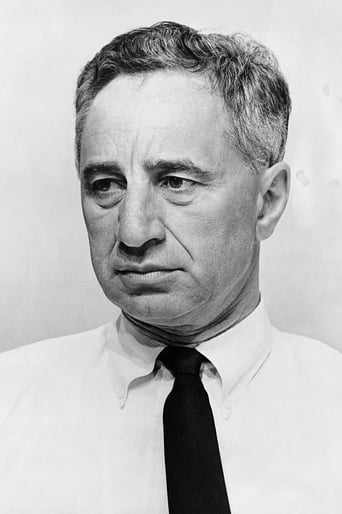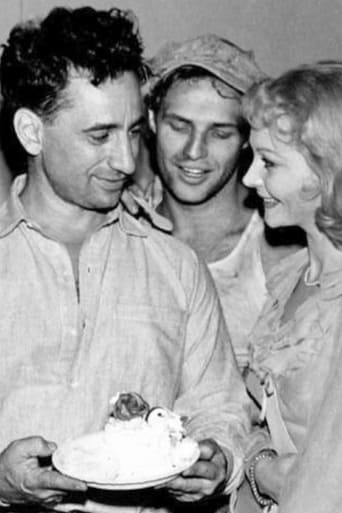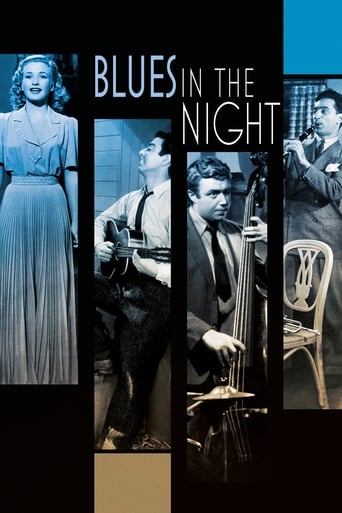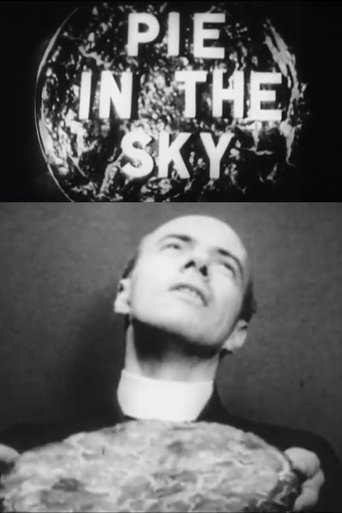

Elia Kazan
From Wikipedia, the free encyclopedia. Elia Kazan ( September 7 , 1909, Kayseri – September 28, 2003) was a Greek-American director and actor, described as "one of the most honored and influential directors in Broadway and Hollywood history". He also produced, and wrote screenplays and novels. Born in the Kayseri, Ottoman Empire to Greek parents, they emigrated to New York when he was four. After two years studying acting at Yale, he acted professionally for eight years before becoming a stage and film director. Kazan co-founded the influential Group Theater in 1932 and Actors Studio in 1947, and together with Lee Strasberg, introduced Method acting to the American stage and cinema as a new form of self-expression and psychological "realism". Having been an actor himself for eight years, he brought sensitivity and understanding of the acting process, and was later considered the ideal "actor's director". He himself acted in only a few films, including City for Conquest (1940), alongside James Cagney. Kazan introduced a new generation of unknown young actors to the movie audiences, including Marlon Brando and James Dean, but was most noted for drawing out the best dramatic performances from his actors. As a result, he directed 21 different actors to Oscar nominations, resulting in nine wins. He became "one of the consummate filmmakers of the 20th century", after directing a continual string of successful films, including, A Streetcar Named Desire, On the Waterfront, and East of Eden. During his career, he won two Oscars as Best Director and received an Honorary Oscar, won three Tony Awards, and four Golden Globes. Among the other new actors he introduced to movie audiences for the first time, were Warren Beatty, Carroll Baker, Julie Harris, Andy Griffith, Lee Remick, Rip Torn, Eli Wallach, Eva Marie Saint, Martin Balsam, Fred Gwynne, and Pat Hingle. He also elicited some of the best performances in the careers of actors like Natalie Wood and James Dunn. Producer George Stevens, Jr. concludes that Kazan's films and new actors have "changed American moviemaking". Most of his films were concerned with personal or social issues of special concern to him. Kazan writes, "I don't move unless I have some empathy with the basic theme. In some way the channel of the film should also be in my own life." His first such "issue" film was Gentleman's Agreement (1947), with Gregory Peck, which dealt with hidden anti-Semitism in America. It received 8 Oscar nominations and 3 wins, and Kazan's first for Best Director. It was followed by Pinky, one of the first films to address racial prejudice against blacks. In 1954, he directed On the Waterfront, a film about union corruption in New York, which some consider "one of the greatest films in the history of international cinema." A major film earlier in his career was A Streetcar Named Desire (1951), an adaptation of the stage play which he had also directed. It received 12 Oscar nominations, winning 4, and was Marlon Brando's breakthrough role, although his screen debut was the previous year, 1950, playing a paraplegic war veteran in 'The Men'. In 1955, he directed John Steinbeck's East of Eden, which also introduced James Dean to movie audiences for the first time, making him an overnight star. A turning point in Kazan's career came with his testimony as a "friendly witness" before the House Committee on Un-American Activities in 1952, which cost him the respect of many liberal friends and colleagues, such as playwright Arthur Miller. Kazan later explains that he took "only the more tolerable of two alternatives that were either way painful and wrong". Overall, Kazan influenced the films of the 1950s and 1960s by his run of provocative, issues-driven subjects, and acting. Moreover, his personal brand of cinema, employing real locations over sets, unknowns over stars, and realism over convenient genres, proved influential to a whole generation of independent filmmakers in the 1960s, such as Sidney Lumet, John Cassavetes, Arthur Penn, Woody Allen, and Martin Scorsese. Film author Ian Freer concludes that "If his achievements are tainted by political controversy, the debt Hollywood — and actors everywhere — owes him, is enormous." In 2010, Martin Scorsese co-directed the documentary film, A Letter to Elia, as a personal tribute to Kazan, who he credits as the inspiration for his becoming a filmmaker. Description above from the Wikipedia article Elia Kazan, licensed under CC-BY-SA, full list of contributors on Wikipedia.
Read bio at tmdb | Read bio at Wikipedia
- Born:
- Sep 7, 1909 In Constantinople, Ottoman Empire
- Movie/TV Credits:
- 22
- First Appeared:
- In the movie Strangers All 1935-04-01
- Latest Project:
- Movie Faye 2024-05-15
| Movie | Faye | Self (archive footage) | 2024-05-15 |
| Movie | An American Named Kazan | Self (archive footage) | 2019-03-10 |
| Movie | Arthur Miller: Writer | Self (archive footage) | 2017-12-08 |
| Movie | Inside Rupert Pupkin | Self (archive footage) | 2014-05-14 |
| Movie | Marlon Brando: An Actor Named Desire | Self - Filmmaker (archive footage) | 2014-09-20 |
| Movie | A Letter to Elia | Self (archive footage) | 2010-09-04 |
| Movie | James Dean: Forever Young | Himself (archive footage) | 2005-05-20 |
| Movie | Life at Any Cost | 1998-08-20 | |
| Movie | Elia Kazan: A Director's Journey | Self | 1995-08-14 |
| Movie | Tennessee Williams: Orpheus of the American Stage | Self (archive footage) | 1994-12-19 |
| Movie | Mist | Old man in the coffee house | 1988-03-18 |
| Movie | Hello Actors Studio | Self | 1988-11-09 |
| Movie | Elia Kazan: An Outsider | Self | 1982-09-15 |
| Series | The Kennedy Center Honors | Unknown | 1978-12-28 |
| Movie | A New Lifestyle | Self | 1969-04-04 |
| Series | The Oscars | Unknown | 1953-03-19 |
| Movie | The Screen Director | Self (archive footage) (uncredited) | 1951-03-12 |
| Movie | Panic in the Streets | Cleaver - Mortuary Assistant (uncredited) | 1950-07-27 |
| Movie | Blues in the Night | Nickie Haroyen | 1941-11-15 |
| Movie | City for Conquest | 'Googi' | 1940-09-21 |
| Movie | Strangers All | Protester Calling for a Ballot at Communist Meeting | 1935-04-01 |
| Movie | Pie in the Sky | 1935-04-09 |



